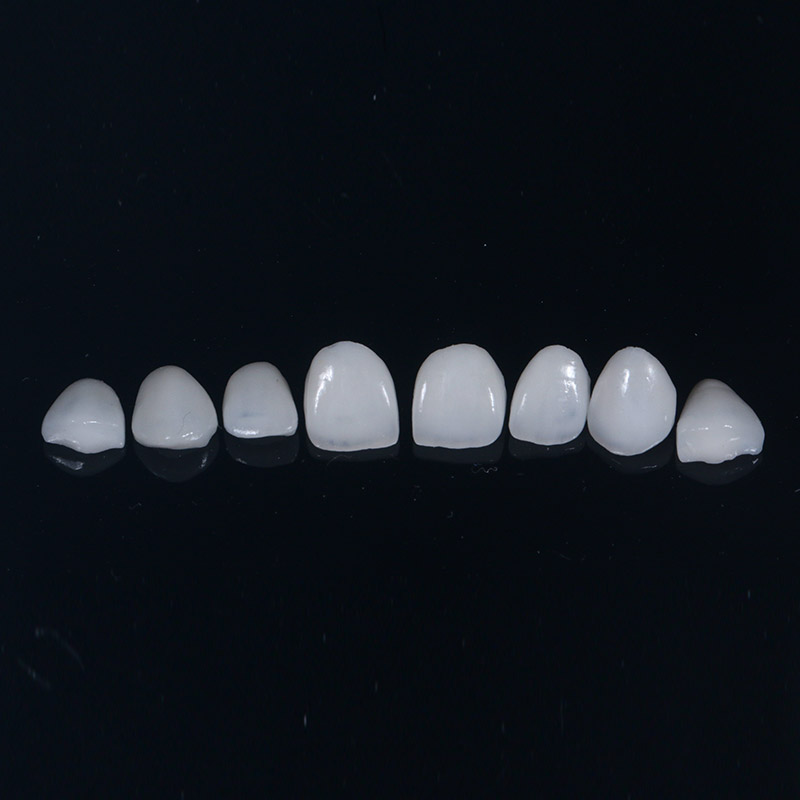Dental veneers are thin, custom-made shells of tooth-colored materials designed to cover the front surface of teeth. They are crafted to improve the appearance of teeth by addressing issues such as discoloration, stains, chips, cracks, misalignment, or irregular spacing. Veneers are a popular cosmetic dentistry solution that can provide a natural-looking and aesthetically pleasing smile.

Key characteristics and aspects of dental veneers include:
1.Materials:
- Dental veneers can be made from different materials, with porcelain and composite resin being the most common choices. Porcelain veneers are known for their durability, stain resistance, and ability to mimic the natural translucency of teeth, providing a lifelike appearance.
2.Customization:
- Each veneer is custom-made to match the size, shape, and color of the patient's natural teeth. This ensures a seamless and harmonious integration with the existing dentition, creating a natural and attractive smile.
3.Procedure:
- The process of getting dental veneers typically involves several steps. First, the dentist conducts a thorough examination and consultation to determine if veneers are a suitable option. Then, a small amount of enamel is usually removed from the front surface of the tooth to accommodate the thickness of the veneer. Impressions are taken, and these are sent to a dental laboratory where the veneers are fabricated. Once ready, the veneers are bonded to the teeth using a strong adhesive during a subsequent appointment.
4.Cosmetic Improvements:
- Discoloration: Veneers can cover severely stained or discolored teeth that do not respond well to teeth whitening procedures.
- Chipped or Worn Teeth: Veneers can restore the appearance of chipped or worn teeth, improving both aesthetics and function.
- Misalignment: For minor misalignments or irregular spacing, veneers can provide a straighter and more uniform appearance.
- Irregular Shapes: Teeth with irregular shapes or sizes can be reshaped and enhanced with veneers.
- Dental veneers can address various cosmetic concerns, including:
5.Durability:
- Porcelain veneers, in particular, are known for their durability and resistance to staining. With proper care, they can last for many years, providing a long-lasting cosmetic improvement.
6.Maintenance:
- Veneers do not require special maintenance beyond regular oral hygiene practices. Patients are advised to maintain good oral habits, including regular brushing, flossing, and dental check-ups, to ensure the longevity of their veneers.
7.Natural Appearance:
- One of the significant advantages of dental veneers is their ability to create a natural and attractive smile. The materials used in veneers can closely resemble the appearance of natural tooth enamel, and the customization ensures a seamless integration with the surrounding teeth.
Dental veneers are a versatile and effective solution for individuals seeking to enhance the aesthetics of their smile. It's important to consult with a qualified dentist to determine the most suitable treatment plan based on individual needs and goals.




